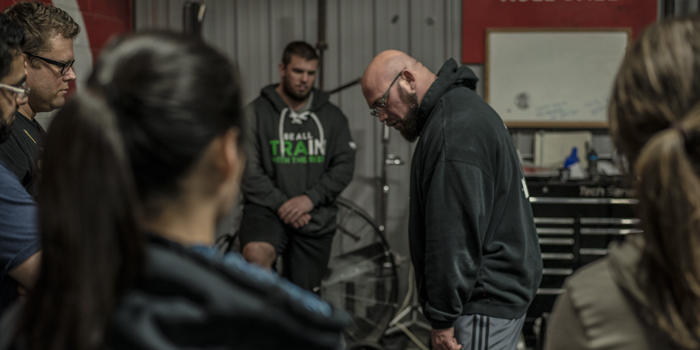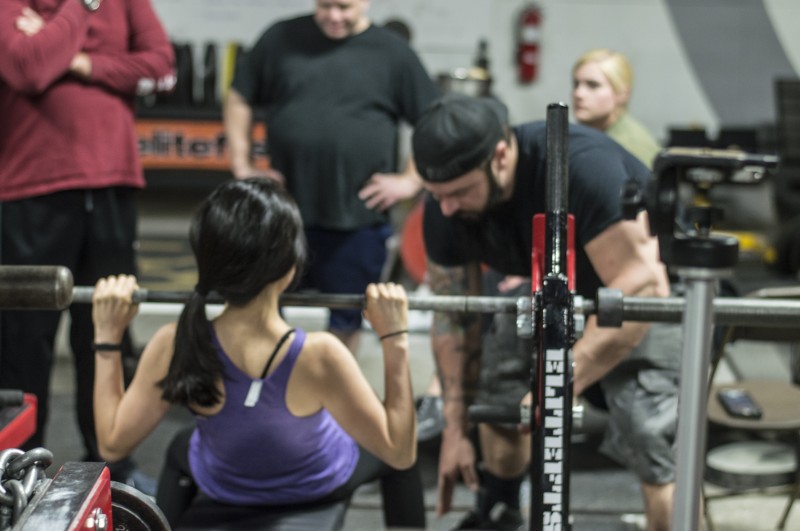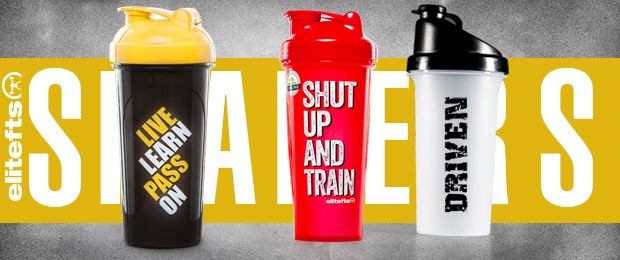
I fall under the multi-racial ethnic group. I am a tropical blend of German, Native American, and African American. I was raised in Akron and went to a high school where I was the poorest kid in school next to my two cousins, both of whom I lived with (trust me there was a huge gap between us and the next socioeconomic group). I’ve been called a “meathead football guy” but against all odds am currently coaching at a refined, high end school, in an Olympic style program.
I say all these things to illustrate the point that throughout my whole life I have never been on one side of the fence or the other; I am always finding myself as the outcast in the middle. I’ve learned that there’s very little black and white in this world. The color spectrum of life is made with a full pallet of grey. This has been a huge advantage for me because I get to see all sides of the world and my experiences have been that much more meaningful due to the edge I’ve gained in perspective. So when an argument comes up about training the female athlete and the differences (having been raised by three women), I can see a perspective that a lot of my male counter parts do not: there is no difference.
RECENT: The Innovator, Imitator, and Integrator
There’s this horrible misconception that females don’t respond well to a certain style of coach or that females will just for some reason breakdown and cry if you raise your voice at all around them. I am here to tell you this is utterly false. Just like any athlete you coach, there needs to be a foundation laid before they accept you. Once you show that you truly care about them, they will run through a wall for you. Whether you are the harshest coach or the "players coach" does not matter if an athlete knows that you truly would do anything for them and that you will do whatever it takes to make them better in all aspects of their life.
The other side of that coin is knowing the personality of the person you’re coaching. I have male athletes that are so sensitive I could never yell at them like I can other males or they would simply shut down. There are men that are sensitive to that type of approach just like there are females. There is no difference. Female athletes aren’t waiting for you to come into the room and sprinkle them with glitter and ponies. They are athletes like every other athlete you coach.
Something I’ve always found misleading is when a coach who just doesn’t have an outgoing personality says, “well, you have to be careful with females." Maybe it’s just your lack of a personality as a coach or lack of presence that’s the problem. It’s very hard for anyone to respond to someone who has the charisma of a stone.
During my time at Robert Morris University, I got really close with my softball teams. There was nothing I wouldn’t do for those girls. This was my first time working with females coming off a graduate assistantship of working with just football players. How did I treat those girls? I treated them like they were my football team. And how did they react? They reacted like they were my football team. From my outfielder asking for trap slaps before she did a heavy set of squats to my pitchers getting riled up when I called them “soft” for not wanting to go up in weight with their DB bench press, my girls got after it. My third baseman would even call me out during sprinting sessions/competitions. We would trash talk each other during races and we would compete against each other. Once they knew how much I cared and once I knew how they responded to certain things, I coached them like I coached anyone else.
Another example is the female teams at American University. My first week or so they heard me cuss and would giggle like little school girls. Now they’re right there with me getting after it. If I walked through the door full Rambo they would’ve looked at me like I was crazy, but they’ve seen over the course of the semester how much I care about them and they are as brash and meat headed as me sometimes (sorry but not sorry). I’ve had field hockey girls call me out during 50 yard dashes and soccer girls challenge me in one-on-one competitions. And if I beat them did they break down and cry? No. They would react like I would and talk trash saying they were going to get me next time (even though the pain of sprinting anything over 20 yards made me want to cry). Which is the most awesomely terrifying thing in the world.
LISTEN: Megan Young Sets Standards High for Athletes... and Herself
Point being, there is little to no difference in coaching different genders of athletes. The one slight difference is that once in a while you’ll see a female athlete break down and cry during a lift. But I’ve also had male athletes break down in front of me to the point I thought they were going to cry. At the end of the day, they’re all just athletes and more importantly they’re kids. They all wake up train, go to class, and compete in college athletics. They all have the pressure of school, parents getting on them, and dating. Every 18-22 year old kid thinks that a break up is the most earth shattering thing in the world. When something gets to them in their personal lives (male or female) they’ll either rise up or shut down. It’s your job as a coach to find out what makes an athlete tick and how to get them to be the best they can be.
Hell, I got after it with the cheer squad at RMU like I would with any other team and they just loved it. That doesn’t mean I was screaming, in their face yelling, because that’s not me. But I was passionate, boisterous, and got them excited to lift. I didn’t baby them because they were cheer girls, we got after it! And if they were being soft I didn’t scream, “you’re being soft” but definitely pointed it out and they would say “coach, you’re right.”
If you know people and know how to reach them then you know there’s no difference in training female or male athletes. As a minority, my strength coach in college didn’t come up to me and say “Yo. Pound it, dawg.” He coached me the same as anyone else. As always, keep grinding and impacting your athletes.
Donald Day is currently an assistant strength and conditioning coach at American University. Prior to American, Don had a brief stint at Robert Morris University as well as serving as a graduate assistant with the University of Akron's football strength staff. At American, Don oversees the strength and conditioning program for mens's/women's track as well as the implementation of the speed and agility program for various sports.










